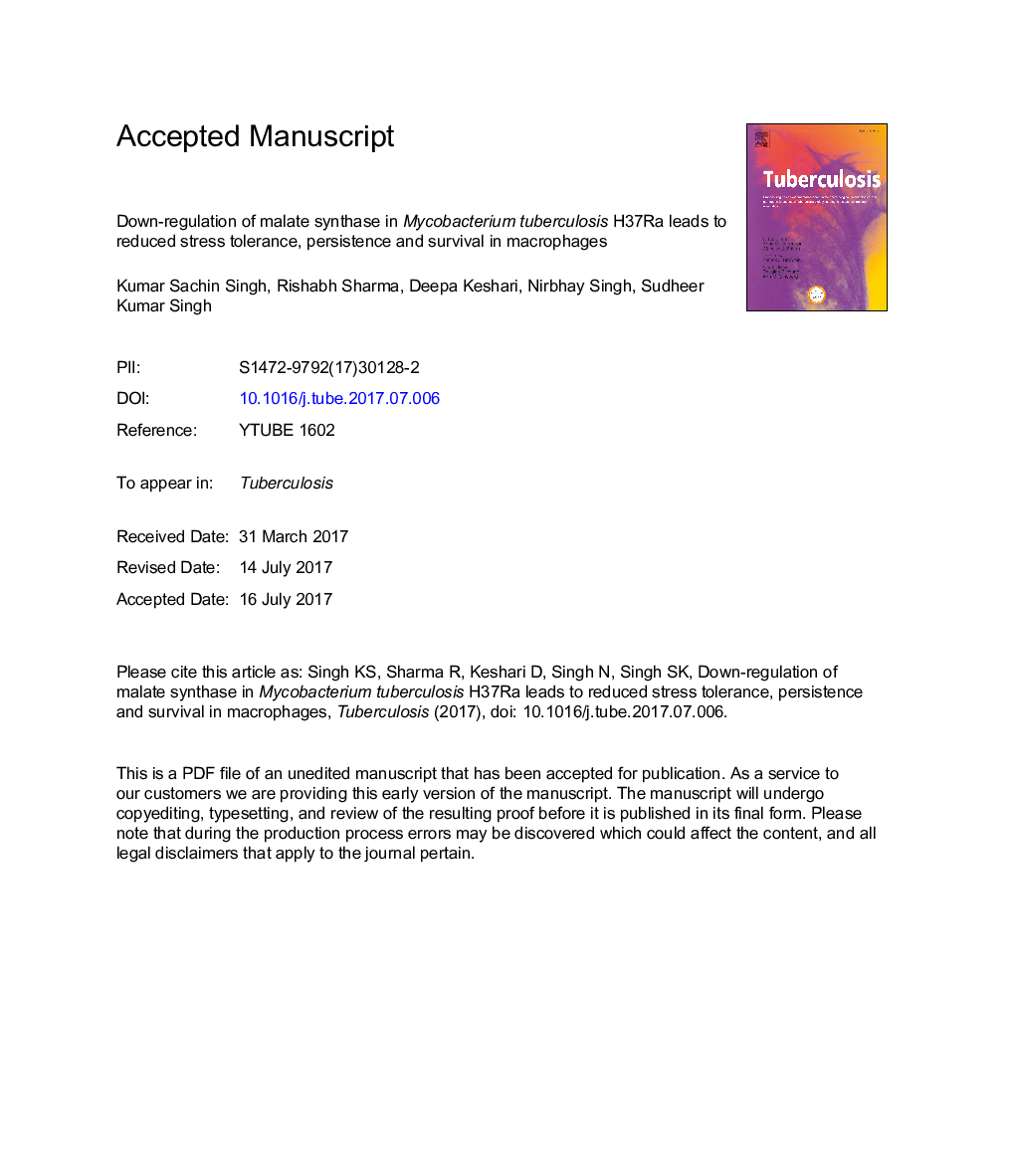| Article ID | Journal | Published Year | Pages | File Type |
|---|---|---|---|---|
| 5536269 | Tuberculosis | 2017 | 27 Pages |
Abstract
Malate synthase is a condensing enzyme responsible for conversion of glyoxylate to malate in the presence of acetyl-CoA. This reaction helps in bypassing the TCA cycle reactions involving carbon loss and leads to diverting some of the carbon skeletons to gluconeogenic events while rest can continue to provide TCA cycle intermediates. Malate synthase (GlcB) is encoded by MRA_1848 of Mycobacterium tuberculosis H37Ra (Mtb-Ra). We developed a knockdown (KD) Mtb-Ra strain by down-regulating GlcB. The survival studies suggested increased susceptibility to oxidative and nitrosative stress as well as to rifampicin. The susceptibility profile was reversed in the presence of free radical scavengers. Also, KD showed reduced biofilm maturation, failed to enter persistent state, and showed reduced growth inside macrophages. The study of post-endocytosis events showed differences in late stage endosomal maturation behavior in macrophages infected with KD compared to WT. Increased iNOS, LAMP1 and cathepsin D expression was observed in macrophages infected with KD compared to WT.
Related Topics
Life Sciences
Immunology and Microbiology
Applied Microbiology and Biotechnology
Authors
Kumar Sachin Singh, Rishabh Sharma, Deepa Keshari, Nirbhay Singh, Sudheer Kumar Singh,
